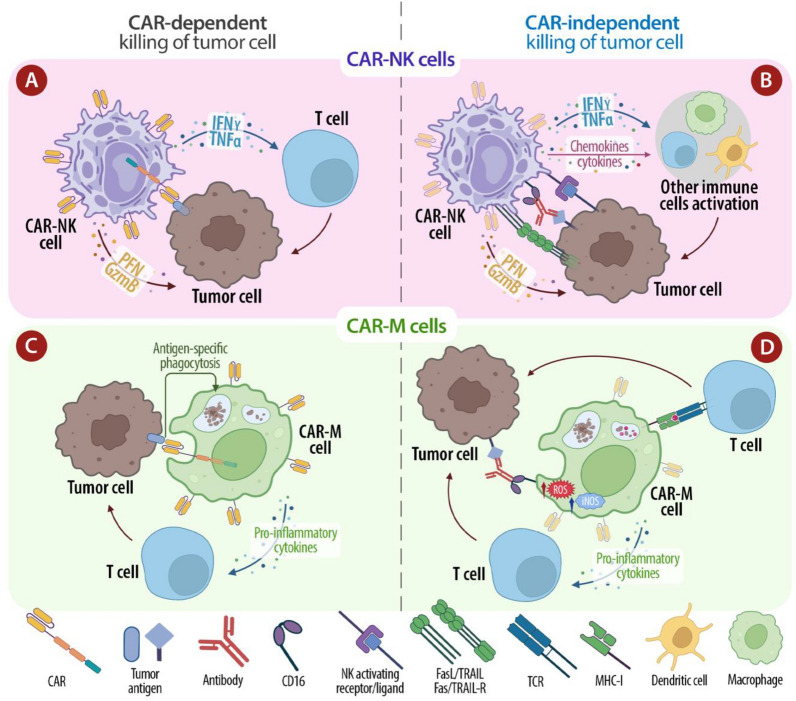Fig.3.
Comparison of CAR-NK and CAR-M cell mechanism of action. A CAR-dependent tumor killing pathway of CAR-NK cells involves the binding of a specific tumor antigen with CAR, and the following secretion of perforin and granzyme B, to kill tumor cells, and pro-inflammatory cytokines (TNF-α and INF-γ), to promote CAR-NKs activation and stimulate antitumor response of other T-cells. B CAR-NK cells can mediate a direct killing of tumor cells through the following CAR-independent mechanisms: signaling of activating receptors expressed on NK cells surface, that lead to secretion of TNF-α, INF-γ, perforin and granzyme B; induction of cell apoptosis through FasL/Fas and TRAIL/TRAIL-R pathways; triggering of ADCC via the CD16 Fc receptor; secretion of chemokines and cytokines that recruit and activate other immune cells. C CAR-dependent tumor killing pathway of CAR-M cells involves the binding of a specific tumor antigen with CAR and the subsequent antigen-specific tumor phagocytosis and release of pro-inflammatory cytokines, which stimulate antitumor response of other T cells. D CAR-M cells can mediate a direct killing of tumor cells through the following CAR-independent mechanisms: direct phagocytosis of tumour cells and subsequent presentation of processed tumor antigens to T cells trough MHC-I molecules; secretion of pro-inflammatory cytokines; triggering of ADCC via the CD16 Fc receptor; expression of “killing molecules”, such as ROS and iNOS, which mediate cytotoxic effects on tumor cells

